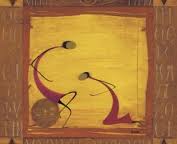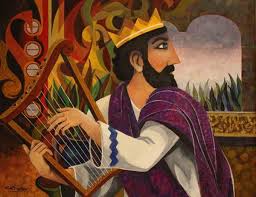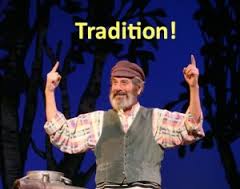Sermon – September 6th 2015
15th Sunday after Pentecost
By Roland Legge
Proverbs 22:1-2, 8-9, 22-23
James 2:1-10, (11-13), 14-17
Mark 7:24-37
I love the story of the Syrophoenician woman! This is the only story in the Christian Scriptures where Jesus is challenged and the other person wins the argument.
Many people don’t feel comfortable with this Scripture because Jesus does not look good. He is having a bad day. I can only imagine that he is tired from all the traveling and people he helps every day. He just wants some peace and quiet. I think we can all relate to that.
Yes Jesus was an amazing man, but he was still a person of his time. He was impacted by the religious and cultural values of the time that required Jews to have no contact with foreigners, especially women.
Jesus, besides being tired was annoyed by this woman because she was breaking taboos. For one thing women were not to speak to men. Even more so that foreign people should not even be recognized as they are believed to be unclean. I think Jesus was feeling grumpy. Jesus was having a bad day. Most men of Jesus time would have reacted this way all the time.
Then there is this amazing gutsy woman who had the courage to ask for Jesus to heal her child. She had the courage to demand justice. This was a very risky thing for this woman to do. She was risking her life. Yet she had a strong faith that Jesus would come around to her point of view.
What is also momentous is that Jesus had a change of heart. He could not argue against her come back, “Sir, even the dogs under the table eat the children’s crumbs”. He could not refuse her and still follow God. It was her courage and faith that brought healing to her child.
We don’t know how the end looked and felt like. Was Jesus moved to compassion or did he reluctantly agree to do what she asked. I would like to think that Jesus was able to give her a big hug at the end. But we will never know.
I feel empowered by this story because Jesus shows me there is nothing wrong in saying that I am wrong when I am. Experiencing Jesus imperfection in this story gives me hope that I can follow in the way of Jesus. Not many men in Jesus time could admit they were wrong, especially when it was a women who is challenging their perspective.
Who are the marginalized in my world whom I need to be transformed by? This week the tragic death of a young child in the Mediterranean Sea has woken the world up to the continuing terrible tragedy of thousands and thousands of people who are trying to escape from war torn countries such as Syria. It is sad that it takes the picture of a young drowned child on a beach that finally wakes up the world. Then how long will it stay in the memory of the people of the world after some other big news story comes along.
One of the largest groups to help refuges come to our country is the church. I believe that the voice of people of faith across our country and world need to speak up even louder putting pressure on our government to welcome more refugees who are leaving their homelands to survive. Congregations and parishes such as ourselves are being called to sponsor even more refugees. Yes it is a lot of work, but I believe we are called to help our brothers and sisters from around the world when they are distress as we would expect them help us if needed.
I remember when I was growing up how the Vancouver Monthly Meeting of the Religious Society of Friends welcomed a large family Vietnam, one of the families of boat people. It was a rich experience for the congregation to get to know them and learn of their story. It took a lot of courage for them to find their way to Canada. We helped them to learn how to live in Canada and they offered us their friendship and appreciation.
There are many marginalized people in our country. It is not only people of different races and nations but it includes the mentally ill, people living with disabilities, gay, lesbian, transgendered and bi-sexual people. The Syrophoenician woman shows us how the Spirit keeps on calling us to recognize all people as children of God. There is no such person as an enemy.
I have been blessed by people who have challenged my prejudices and racist views. I once had qualms about same gendered couples having children. Some friends of mine challenged me on this, just like the Syrophoenician woman did for Jesus. After conversations with them I could no longer hold the same point of view.
What do you think the Syrophoenician woman would say to us at Foam Lake United Church? I wonder if she would call upon us to accept all people even if we don’t agree with all the choices they have made in life. I wonder if she would call upon us in the United Church of Canada to never divide the world into the good and bad, the sheep and goats because the Spirit never does . Instead of wanting to blame others, she would want us to look at our own shadow side, the parts of us that are need of healing. I wonder if she would call upon us to really listen to each other. To take a risk of being transformed by another person as Jesus was transformed by this woman.
I pray that we can all learn something new from this courageous woman to care for those we would otherwise walk away from. I hope we can learn from Jesus that to admit, when we are wrong, is a sign of courage.
Sometimes we do need to take a stand like the Syrophoenician woman when our hearts burns with love. Sometimes we need to admit it that we got it wrong. We all need to keep expanding our understanding of God’s love. God’s love is always much bigger than we think or want to admit.

